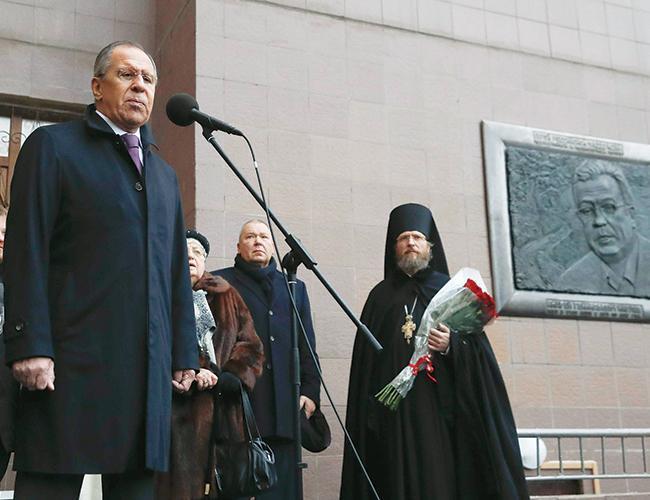
Files on a hard disk belonging to police officer Mevlüt Mert Altıntaş, who assassinated Russian Ambassador to Turkey Andrey Karlov in Ankara in December 2016, have been cracked by the Russian intelligence service, according to the latest findings in the investigation into the killing.
As part of Turkey and Russia’s joint investigation ongoing since last year, Turkish intelligence services initially completed their examination of the hard disk of Altıntaş’s laptop but were unable to retrieve the erased documents.
The Russian intelligence services then requested to take the hard disk to Russia, promising “an alternative way” to examine the hard drive.
The Russian intelligence services say they were able to locate two deleted files on the drive including the keywords “Fethullah Gülen” and 690 deleted files including the keyword “Hizmet,” a word that means “service” in Turkish and is used by sympathizers to refer to the movement of U.S.-based Islamic preacher Fethullah Gülen.
The Fethullahist Terror Organization (FETÖ) is believed by the Ankara government to have been behind Turkey’s July 2016 military coup attempt.
Crackers also found that four files were deleted including the keyword “FETÖ” and one file was deleted including the keyword “Nur Cemaati,” referring to the Gülen network.
Keywords such as “al-Qaeda,” “al-Nusra,” and “ISIS,” did not yield results in the search.
Altıntaş, who shouted in Arabic before killing the ambassador, reportedly did not have files including Arabic terminology on his drive, and the Ankara Chief Prosecutor’s Office believes his shout was part of an attempted “perception operation.”
“It was determined a perception operation to divert attention and to prevent the revelation of the perpetrators behind the attack,” the prosecutor’s office stated, claiming that the attacker “wanted to give the perception that the assassination was linked to al-Qaeda.”
The Russian investigation team responsible for the case met with Ankara Chief Prosecutor’s Office investigators on Dec. 18.
Ankara Chief Prosecutor Adem Akıncı, who has overseen the Turkey leg of the inquiry, reportedly stated that Altıntaş’s “group leader” was an educator who is known to be a user of the ByLock application who is currently arrested facing trial in Ankara as part of another FETÖ case. ByLock is a smart phone application that was once widely-used by Gülen sympathizers.
Akıncı has taken out a detention warrant for the “group leader” suspect in case he or she is released.
As a result of the ongoing investigation, the prosecutor’s office believes that Altıntaş was a member of FETÖ and that the attack on Karlov was ordered by FETÖ.
Meanwhile, reports on Dec. 18 stated that social media posts and e-mails sent by Altıntaş were determined to have been deleted with the help of a virtual computer.
According to findings in the investigation, members linked to the Gülen network managed to connect to Altıntaş’s mobile phone via VPN around the time of the assassination, deleting his Gmail and Facebook conversations.
The IP address that was used during the deletion had been leased from the U.S.-based Express VPN, which does not store activity or connection logs.
The prosecution’s contact with the company did not yield results as Express VPN stated that it is not subject to the rules of U.S. and EU laws.
As a part of investigations ongoing since last year a total of 33 suspects have testified and four people, including two police officers and Guru Media Broadcast Group Chairman Hayreddin Aydınbaş, were previously arrested in connection to the assassination.
Recently, former police officer Ramazan Yücel, who was previously dismissed from his post over alleged links to the Gülen network, was arrested on Dec. 14 in connection to Karlov’s killing, on charges of “participating in premeditated murder.”
Karlov was shot dead with nine bullets fired by Altıntaş late on Dec. 19, 2016 while delivering a speech for a photography exhibition at an arts center in Ankara. Altıntaş was later gunned down in an exchange of fire with security personnel at the scene.
Commemoration in Russia
A commemoration ceremony, attended by Russian Foreign Minister Sergey Lavrov, Karlov’s wife Marina and Ankara’s ambassador to Moscow, Hüseyin Dirioz, was held in front of Karlov’s house at Petrozavodskaya Street in Moscow.
“In recent years, he [Karlov] did a lot in Turkey. He made a significant contribution to the development of our relations with one of the most important neighbor,” Lavrov said in the ceremony.
“Andrey died while fulfilling his official duty and we will never forget him,” he added.
The foreign minister said Karlov was a “close” friend of him and was one of the “best” Russian diplomats.
Speaking to Anadolu Agency following the ceremony, Turkish ambassador Dirioz said Karlov’s death “is a loss both for Russia and for Turkey.” Dirioz said the assassination was directed against the relations between Moscow and Ankara by the Gülen network.